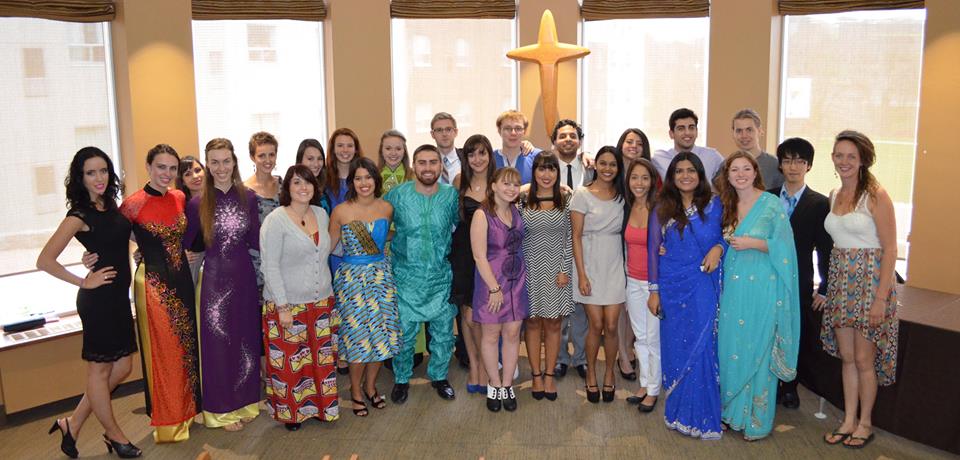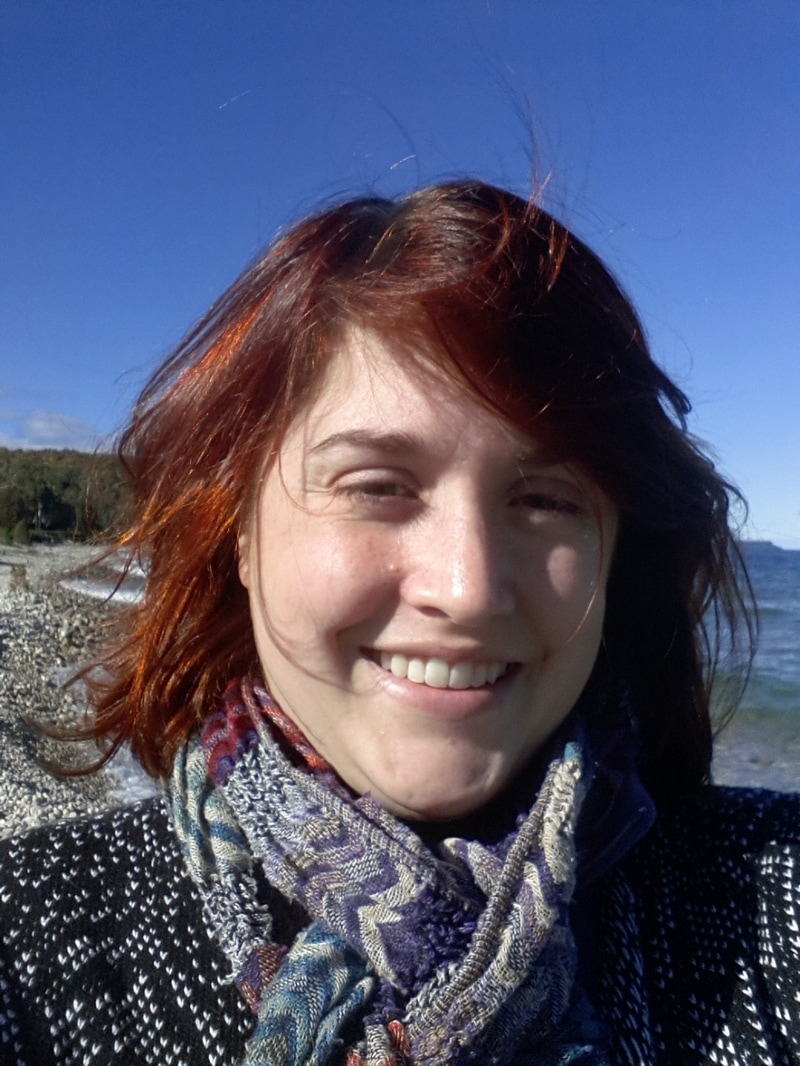|
As there were, unfortunately, no pictures or videos taken of my capstone presentation, I thought I would share some of my slides and script for those of you who were hoping to hear it. 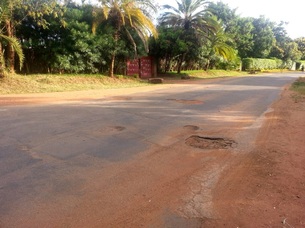 Hello! My name is Katiana and I will be giving you a snapshot of some of the potholes I encountered while on placement, and share methods that allowed me to remove, resolve, or work around them. For the last eight months, I was living and working in Lilongwe, Malawi, in Dzaleka Refugee Camp with the Jesuit Refugee Service of Malawi. And, like most life events, and the placement experiences of my fellow cohort members, my time away was riddled with good, bad, inspiring, strange, and blah moments. 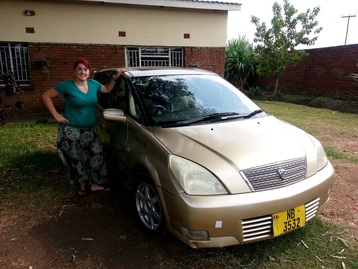 Let’s frame this in the story of my experiences driving while on placement. Lilongwe is a sprawling city, and having a personal life is greatly aided by a car, as it gets dark at 6 pm, after which it is no longer safe to be outside unless in a vehicle, and taxis are rather expensive and can be unreliable. So, a couple of months into placement, I bought a car – my first! And yes, it did make life easier… when it was working. But, I was driving it during the rainy season, I lived on a particularly horrible dirt road, and the car I bought does not have much clearance. So I became very well acquainted with the potholes that I needed to dodge, slow to a crawl to survive, and, yes, sometimes bottomed out in. Not to mention the many goats, chickens, people, bicycles, and other drivers that I needed to pay attention to. Working in a development agency happened to have a lot of parallels to this journey, and as I learned to adapt my driving style and skills to Malawian roads, I also learned how to navigate the complexities of working in an environment of culture clashes, delicate hierarchies, and a workload-staff imbalance. 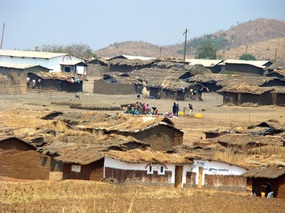 Dzaleka Refugee Camp is a permanent camp, meaning that buildings are generally mud brick, and residents have often lived there for 10 to 15 years. Most residents are from DRC, Rwanda, Burundi, Eritrea, or Somalia. The Jesuit Refugee Service works to provide education, at all levels, to the residents of camp, and to Malawians from the nearby villages. Programs range from preschool, primary, and secondary school, to college credits, vocational training, and include a few income-generating projects. The staff of JRS are dedicated individuals who really live out the JRS motto of accompanying, advocating for refugees and displaced people, and serving them, and I was honoured to be able to join them for eight months. My original role at JRS was to work with the continuing education program to create a new sustainable agriculture course and work with the students in the community garden. A secondary task was to work with the Umoja Crafts group, an income-generating project for vulnerable women. But remember my analogy of potholes, and the undeterminable depth of the one below will give you an idea of where I am headed. 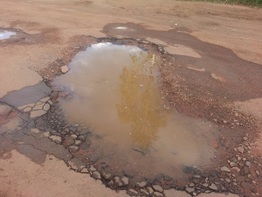 A month into my placement, the head of the JRS office decided that volunteer hours could be better used in a different sector of their work, and I was reassigned. My new task was to facilitate the creation of a special needs education program in the primary school – not of any environmental focus which is what INDEV aims for, and nothing that I have training in. I started with two teachers who were trained in hearing and visual impairments, but had no knowledge in the realm of general special needs. They had additional responsibilities and were only able to dedicate part of their weeks to the Special Needs Education Program. We had an empty classroom and very few resources with which to outfit it. There were twenty children that we evaluated individually and chose to include in the class, and this group had extremely diverse special needs - some of them were cerebral palsy, after-effects of polio, physical disabilities, hearing impairments, learning difficulties, and Down Syndrome. I had no specialist training, and as recent transplant, no connections in Lilongwe. We were off to a slow start, and I felt overwhelmed, and simultaneously found that I had too much to do, and nothing I could do. 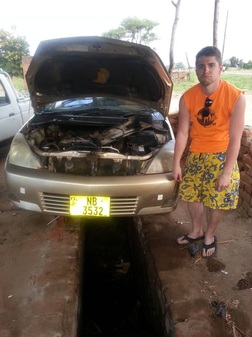 After wallowing in despair like a good literary heroine, I pulled myself up by my, well I was going to say bootstraps, but considering the rare times I actually wore shoes they were flipflops… I reframed the experience, and realized that there are a lot more things that I CAN do than that I can’t. I have been privileged in the education and critical thinking skills I have been equipped with, and my international contacts are a great resource. Even broken and missing parts can’t keep my car from continuing to, somehow, chug along and make it to the destination. 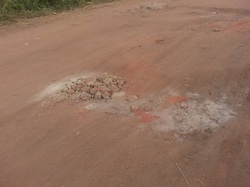 And that is my aim today. To show the future students, and to share with you, ways that you can surmount obstacles… or even, if I dare say it – circumvent them. There are ways to get stuff done that require a shift in attitude, an altered perspective, and a realization that our ‘outsider’ realities allow us to propose changes that people embedded in the organization and culture may not see as options. First of all, I added the Umoja Crafts group back into my mandate, as they had no internal leadership or management that could sufficiently run the organization. They had never been taught the skills to learn how to stand on their own. Part of JRS Malawi's new directives included adding more income-generating activities, and the Umoja Crafts group was the prototype, helping them to grow and learn how to succeed without outside assistance was a huge and needed step. I spent a lot of time doing research on special needs and teaching to specific needs, and passed that knowledge on to the teachers placed in the classroom. I also approached contacts overseas and in the country to get additional information and resources to outfit the classroom. Classes commenced, and with some continued guidance from me and specialists that I was able to connect with, the program began to breath. I left the Umoja Crafts group a few weeks ago, with a functioning democratic leadership system, a confident leadership team, and clearly outlined steps that we worked together to write that will ensure their continued future development and success. The SNE Program was also running smoothly – with regular attendance from children, progress in their learning goals, and teachers who feel more confident in their abilities and who are better able to do their jobs with the supplies that are now present in the classroom. One example of this is when some of the children learned how to use building blocks – a surprisingly difficult task for them to grasp, and so rewarding when they began to build more than simple towers. 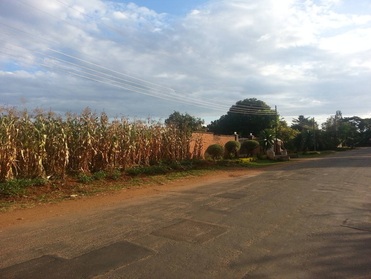 Placement was a drawn-out process of learning how to properly fill potholes, and the strategies that I developed are ones that will help me to succeed in future jobs, and I hope, that you will also be able to apply. How I made the most of placement – both at work and in my personal life: ask questions all the time, and expect to learn from those around you. Read others’ experiences and take in their knowledge – I read many blogs and journal articles and books to learn how to best make the changes that needed to happen. Don’t take for granted your ability to research and think critically – these are skills that a lot of people I encountered were not able to develop or use to their best advantage. Reach out for help – develop a support network, ask previous students and field-specific professionals for their advice! Show respect, but also speak up – learn that tenuous balance. If you don’t have work to do – take on co-workers overload, make up jobs (in the sense that, you may see needs where the organization doesn’t perceive them), vocalize your skills and ask how you can put them to use, and when you are given a task to do, assume you can do it – again, research and critical thinking skills take us farther than you might expect. And honour and celebrate the human element of your experience, and that of those around you. Thank you.
0 Comments
Leave a Reply. |
AuthorWelcome! My name is Katiana and I am a development professional pursuing my dream to live out Isaiah 1:17 to the best of my abilities. I am passionate about teaching and working with vulnerable families and children to improve their lives sustainably.
CaveatThis blog is composed of my personal opinions, which do not necessarily reflect the opinion or views of institutions or organizations that I may be or have been affiliated with.
Categories
All
Archives
July 2017
|
